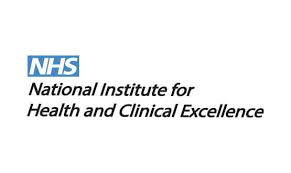Nice have recently published new Guidelines for the diagnosis, management and treatment of ME/CFS. The new guidelines can be found here https://www.nice.org.uk/guidance/ng206/chapter/recommendations . For many people with ME/CFS these guidelines might be a bit overwhelming and they are more aimed at medical practitioners than the general public. The ME Association has provided a useful summary here https://meassociation.org.uk/about-what-is-mecfs/nice-clinical-guideline/
Summary of old guidelines and what has led to the change
For people new to ME/CFS who are not aware of the decades of struggle to get the guidelines changed I will provide a little summary of key elements to the old guidelines and treatment of people with ME/CFS. The old guidelines were very heavily influenced by a specific lobby group who promoted the Biopsychosocial model of medicine in the treatment of ME/CFS. This was routed in the notion that patients were not really ill, they did not really have problems beyond “exercise aversion”. They had false notions that they couldnt do activity, backed up by deconditioning and what they needed was to gradually increase activities and potentially work with CBT therapy to challenge these so called false beliefs. Many patients with ME/CFS were subjected to treatments that seemed to significantly make them worse. In some instances a patient would be just about managing to hold down a job and after their Graded Exercise treatment they could end up unable to work and stuck in bed unable to get up, unable to look after themselves. Despite many, many people reporting harm caused to them by GET the treatment stayed in place. There was quite a bit of research supporting the GET approach but it has become clear that there were significant problems with this research including for the largest piece of research the PACE trials it coming to like that patients who reported being worst from GET were still counted as cured. In other instances collaborators in GET based trials were used for supposedly independent peer review of research papers.
This approach also impacted how others saw people with ME/CFS in that often they were seen as just not doing what they needed to do to get better or “faking it” rather than having a hugely life debilitating and in some cases ending condition.
My thoughts
Finally and far, far later than should have been the case NICE have stopped recommending a treatment that was causing patients harm. Whilst this is welcomed it still feels to me that there is a long, long way to go.
Diagnosis of ME/CFS is not managed well by the NHS with many individual practitioners ignorance and prejudice getting in the way. Best practice is rarely followed and there are few specialists who can assist GPs and other practitioners where there are challenges.
We have had decades in which practitioners and the general public have often acted as though people with ME/CFS are not really ill, not really deserving of support either medically or with other aspects of their lives. Research in ME/CFS for a while in the UK has been dominated by dead ends of GET related treatment. We do need to do more as a society to meet the needs of those with ME/CFS and medically far, far more could be done to look into diagnosis and treatment for those with the condition.
There are still practitioners practicing with false beliefs of the illness and this is risking patient harm. There is not an easy solution as you cannot just educate away prejudice but more should be done to make it done to help those willing to learn and pressure those who wont out of the profession.
Ben



